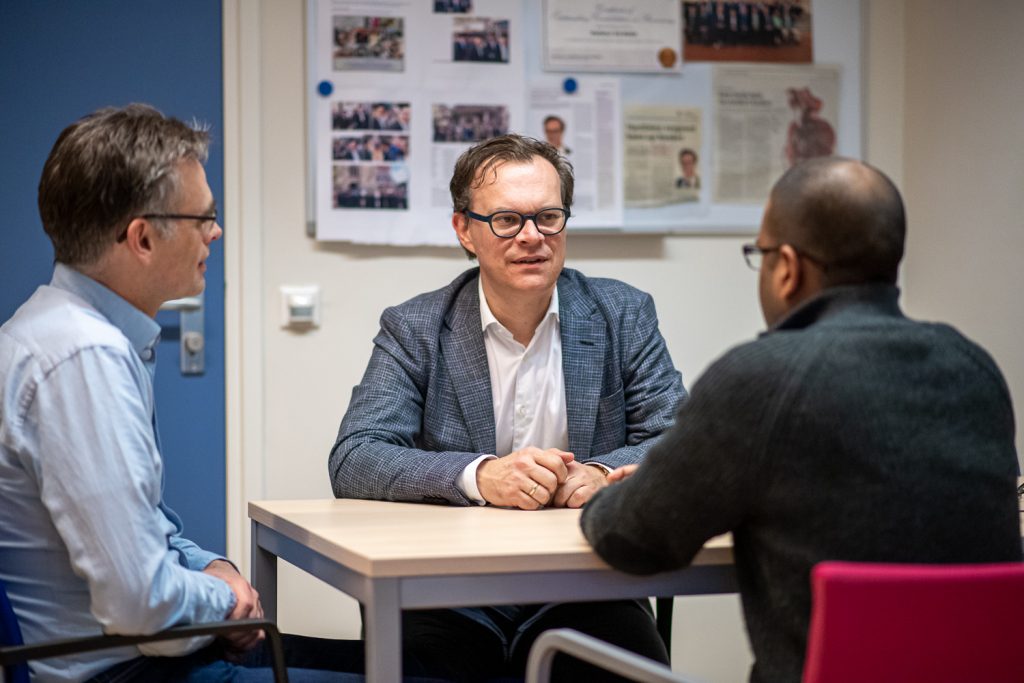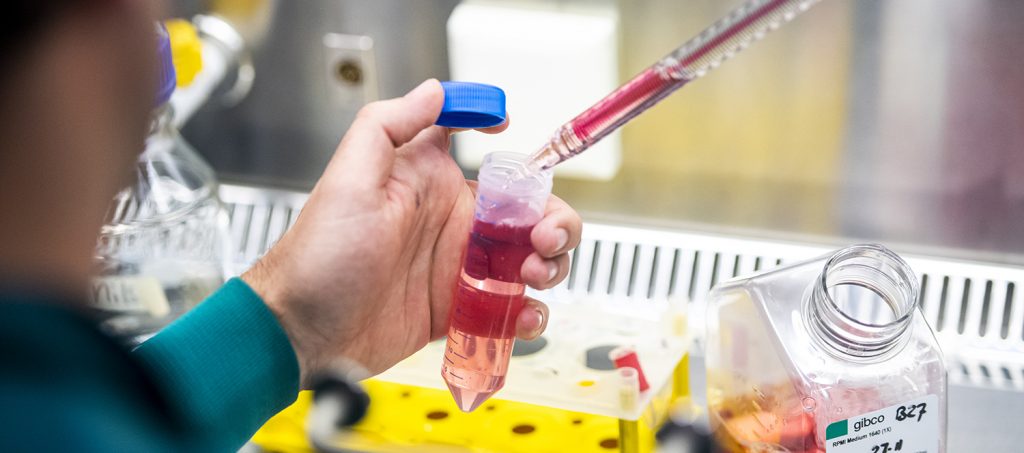
SECRETE-HF
Secreted factors in cardiac remodeling provoke tumorigenesis and end organ damage in heart failure
SECRETE-HF
Heart failure (HF) and cancer represent two major causes of morbidity and mortality worldwide. Their co-occurrence is a major clinical problem as it impinges the quality of life of the patients. In recent years, the previously unappreciated link between cancer and HF has emerged from numerous epidemiological studies reporting an increased cancer prevalence in HF patients.
On this basis, we assume that HF might represent an oncogenic condition. This hypothesis was supported by our recent findings (Meijers et al, 2018. Circulation) showing that HF promotes intestinal precancerous polyp growth, independent of hemodynamic impairment, and this might be caused by cardiac excreted factors.
The main objective of SECRETE-HF is to identify and explore the effects of the secreted factors from failing hearts, which could explain the etiology of common multi-morbidity in HF. Further, we focus on two comorbid patterns in HF: the established comorbidities renal, liver and pulmonary diseases, and the new emerging-unexplored comorbidity cancer. We are using innovative experimental approaches that involve established animal models (e.g. organ transplant models), target findings, several disciplines (proteomics, metabolomics, genomics, extracellular vesicles profiling) and deep phenotyping of clinical databases.
In summary, evaluating HF-secreted factors and their role in tumor growth demonstrate a great clinical relevance
as it could be used to risk-stratify patients and to optimize the management of HF patients who are at risk of developing cancer.
“In the next few years, we expect that the field of cardio-oncology will evolve in innovative ways with breakthroughs that will translate into their use for diagnosis, primary prevention, and treatment.”
People involved
International collaborations
- Javid J. Moslehi (Vanderbilt University)
- Alexander Lyon (Imperial College)
Press & publications
Common risk factors for heart failure and cancer.
Meijers WC, de Boer RA. Cardiovasc Res. 2019
view on publisher siteHeart Failure Stimulates Tumor Growth by Circulating Factors.
Meijers WC, Maglione M, Bakker SJL, Oberhuber R, Kieneker LM, de Jong S, Haubner BJ, Nagengast WB, Lyon AR, van der Vegt B, van Veldhuisen DJ, Westenbrink BD, van der Meer P, Silljé HHW, de Boer RA. Circulation. 2018
view on publisher siteCancer and heart disease: associations and relations
Rudolf A. de Boer, Wouter C. Meijers, Peter van der Meer, Dirk J. van Veldhuisen. European Journal of Heart Failure, 2019
view on publisher siteTowards better definition, quantification and treatment of fibrosis in heart failure. A scientific roadmap by the Committee of Translational Research of the Heart Failure Association (HFA) of the European Society of Cardiology.
4. de Boer RA, De Keulenaer G, Bauersachs J, Brutsaert D, Cleland JG, Diez J, Du XJ, Ford P, Heinzel FR, Lipson KE, McDonagh T, Lopez-Andres N, Lunde IG, Lyon AR, Pollesello P, Prasad SK, Tocchetti CG, Mayr M, Sluijter JPG, Thum T, Tschöpe C, Zannad F, Zimmermann WH, Ruschitzka F, Filippatos G, Lindsey ML, Maack C, Heymans S. Eur J Heart Fail. 2019
view on publisher siteReverse Cardio-Oncology: Cancer Development in Patients With Cardiovascular Disease
Joseph Pierre Aboumsallem, PhD; Javid Moslehi, MD, PhD; Rudolf A. de Boer, MD, PhD Journal of the American Heart Association. 2020
view on publisher site



